New Economy Minister Martín Guzmán outlined broad themes Wednesday regarding policy proposals that he hopes will revive Argentina's economy – but he didn’t delve into the specifics that Argentines and investors have waited months to hear.
The country will open talks with bondholders to delay the nation’s debt payments, Guzmán said in his first public comments as minister, adding that he’s already negotiating with the International Monetary Fund (IMF) for a new programme amid a recession. He believes investors understand Argentina can’t currently pay its debt.
"We have already had conversations with the IMF and there is already recognition of the failure. What is missing is to recognise the need for a different programme," said the new minister.
He said there would be a "comprehensive macroeconomic plan" to lift Argentina's out of crisis, without giving details.
Guzmán, a former researcher at Columbia University, takes the reins of the economy under President Alberto Fernández’s new government, which faces a severe economic crisis, challenging creditor talks and a record US$56-billion IMF credit line. On Wednesday he toed a fine line between acknowledging Argentina’s economic woes and the reality of having no access to cash.
Argentina must modify its debt schedule so the economy can grow, he said, and noted that the lack of access to financing means the country can’t increase its fiscal deficit. His comments echoed Fernández, who said in his first day in office that Argentina wants to meet debt obligations but must first grow.
“We’re going to fix the virtual default the country is in,” Guzmán told reporters at a press conference in Buenos Aires. “Argentina doesn’t want confrontation with creditors, it wants to be constructive.”
"We have come to solve a very deep economic and social crisis. The situation is extremely fragile," he added.
Argentina's economy is predicted to contract by 3.1 percent this year, with inflation closing out the year at around 55 percent.
Guzmán also dismissed a detailed presentation on the nation’s debt he made less than a month ago. At a United Nations conference held November 19 in Geneva, he recommended that Argentina delay payments on capital and interest for two years and argued for concluding negotiations by March 2020.
When asked Wednesday if he maintained those views, he said that the presentation didn’t reflect his current approach as a minister. He added that he would release the details of his debt plan in writing.
'Failed plan'
Guzmán said the country’s existing programme with the IMF had “failed” and that he had already begun talks with its officials. The IMF granted Argentina a record loan in June 2016 as the government, then led by President Mauricio Macri, faced a currency crisis. Fernández lambasted the Fund on the campaign trial for its austerity plan, which he blamed as partly responsible for Argentina’s recession.
The IMF confirmed Wednesday that its Managing Director Kristalina Georgieva met with Guzmán before he took office. IMF Chief Spokesman Gerry Rice is expected to give more details about Guzmán’s meeting with Georgieva Thursday morning at a press conference in Washington.
Guzmán also said the government will ask Congress in the coming days to hold “extraordinary sessions” to debate a “solidarity and economic reactivation” programme.
Analysts and investors, who have been awaiting details of the country's new economic programme since Fernández was elected October 27, pointed to the lack of a roadmap in the minister’s remarks.
“Argentina knows the problem but doesn’t yet have a solution,” said Siobhan Morden, head of Latin America fixed income strategy at Amherst Pierpont in New York. Other than hoping for economic growth “there is no plan.”
Guzmán’s speech also kept analysts guessing on whether he will seek to impose harsh terms on bondholders. Fernández had previously suggested he sought to impose minimal losses.
“His view of debt being unsustainable could suggest some haircut, but it could also be compatible with a re-profiling, if the economy recovers in between,” said Alejo Costa, the chief strategist at BTG Pactual Argentina in Buenos Aires.
Capital Economics said in a recent report that "Alberto Fernández's plan to resolve the Argentine debt crisis by growing the economy is not a realistic option. We think that a debt reduction in the coming years is inevitable."
During his press conference, Guzmán did not clarify whether the country will continue to make debt payments during the debt talks.
Capital controls, which were implemented in September after the peso plunged in August following a primary vote, will remain in place until the “economy is calm,” he added.
The Economy Ministry also released a statement announcing Guzmán’s team, including Raul Rigo as Treasury Secretary, Diego Bastourre as Finance Secretary, and Haroldo Montagu as Economic Policy Secretary. The team will also propose Sergio Chodos as the Southern Cone’s director to the IMF.
Guzmán acknowledged that building credibility won’t happen overnight.
”Reputation isn’t something you earn from one day to the next, you have to build your reputation showing a consistent macroeconomic plan,” he said.
– TIMES/BLOOMBERG/AFP











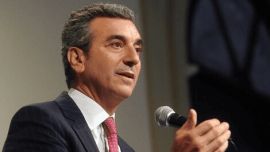




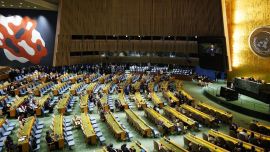
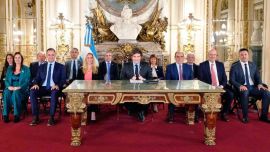
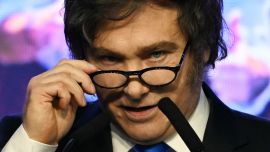
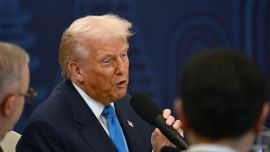





Comments